Archive for December, 2022
Ring out the old, ring in the new
Posted by cathannabel in Events, Music, Personal, Theatre on December 31, 2022
Every week, for the last three and a half years, I’ve posted on Facebook about ‘Good Things’. This isn’t a ‘let’s not talk about the bad stuff’ exercise – it acknowledges, explicitly, that the reason I’m doing it is because there is a lot of bad stuff, globally and personally, and it is thus important sometimes to home in on and hold on to the good that is there, even if that good stuff seems rather small and trivial in comparison to war and climate change and poverty and everything. It’s not ‘always look on the bright side’ so much as ‘always look for the bright moments’. Older readers might think of the 1913 children’s book Pollyanna, whose central character is known for being relentlessly cheery at all times. Whilst this can be rather cloying, and I would refute the notion that there is something good to be found in every situation, the idea that it is healthy to remind oneself that there are good things is a valid one. Which is why I’ve kept those posts going, and why they invariably get likes and comments, and people urging me to continue.
It’s certainly not as if the period during which I’ve been doing this (and there were sporadic efforts before, my ‘reasons to be cheerful’) lent itself particularly to optimism, on any front. The world has been going to hell in a handcart faster than ever, it would seem. And on a personal level, when I posted my first ‘Good Things’ my youngest brother was terminally ill with cancer. He died the following February, just before the pandemic deprived us of so many of the things that might normally bring us comfort in hard times. Then, of course, in October 2021, I lost my husband. He died less than 24 hours after I’d posted that week’s Good Things, and when I re-read it I realised that despite the horror of what had happened, I stood by everything I’d said. Those good things were real and true and not invalidated by the huge Bad Thing that had engulfed us. So I’ve carried on.
It’s hard to find much on the national or global scale to celebrate – at most, some things didn’t turn out quite as badly as we feared (the US mid-terms, notably). Our government was incompetent and corrupt, chaotic and callous, as we’ve come to expect, and the usual people are suffering as a result – don’t be poor, don’t be disabled, don’t be old, don’t be sick, and for heaven’s sake, don’t be a refugee… Conspiracy theories, whether about climate change or vaccines or anything else one can think of, seem to be multiplying and spreading more rapidly each year, not helped by the takeover of Twitter, already an excellent breeding ground, by a leading conspiracy theory enabler and exponent. Ukraine is still suffering under – and fighting back against – the Russian invasion. Women in Afghanistan are shut out of the universities. It is easy to despair.
Of course there are always good people standing up for the vulnerable. The RNLI will carry on risking their members’ lives to save those whose dinghies are capsizing in the Channel. Food banks will continue handing out essentials to families who can’t make ends meet. Individuals and organisations will continue to provide safety nets, to challenge bigotry, to tell the truth and to shame (or at least try to shame) the powerful into using their power for good, and the brave will stand up anyway, in Iran and Afghanistan as in so many other places, whatever the risk.
In my own life, despite the sadness, I’ve had good things.
I got a new knee in February and (after a short but tough period of recovery) that gave me the confidence to be braver and more adventurous than I would have done otherwise. I went to Wembley to the Championship Playoff final, with my son. (The football has actually been a Good Thing in 2022, the first year for decades when I could have said that.) I went to Progfest with my brother in law and to the Tramlines music festival, with my son and with friends. I travelled to Rome, on my own (but was met by my brother, with whom I stayed). I would have done none of those things without the op, I would have been too scared, not only of the pain, but of my knee suddenly refusing to bear my weight, or of falling. That fear nearly paralysed me when he died – I could see myself so easily becoming virtually housebound, dependent entirely on others to get around, and that hasn’t happened.






I have needed more help this year, especially without a car or someone to drive it, and I’ve always found the help that I’ve needed, sometimes by asking very directly for it (anyone taller than me – i.e. most adults – entering the house is likely to be greeted on the doorstep with a request to change a light bulb or lift something down off a high shelf), at other times because some nice young man or woman has seen me struggling with a suitcase or whatever and has offered assistance. I’ve also found someone to help me with the cleaning, someone to help me with the garden, a handyman and a decorator.
I finished the PhD, submitting just over a week before he died, and had my viva in May. I’m very proud of the thesis, and I absolutely could not have done it without his support, in big ways and small – so many times I was writing away, lost in my work, only to realise that he had snuck in, delivered a hot cup of tea or coffee and snuck out again, without breaking my train of thought.
I’ve been to the theatre, to a stunning production of Much Ado, by Ramps on the Moon which used its cast of (mainly) deaf and disabled actors inventively and boldly, and tweaked the text accordingly. Much Ado works or doesn’t depending on Beatrice and Benedick, and here both were outstanding and unforgettable. The Guardian reviewer described Daneka Etchell (who is autistic) as ‘the most compelling Beatrice you might ever see’, and she was responsible for an extraordinary scene, when, in her distress at the injustice being inflicted on Hero, she starts stimming. Both her anguish and Benedick’s tenderness in trying to help calm her were very moving.
We very much enjoyed a performance by Under the Stars, an organisation who we supported with Martyn’s memorial fundraiser, who are an arts and events charity for people with learning disabilities and/or autism, running music and drama workshops and nightclubs. The play was The Many Journeys of Maria Rossini and it used words, music and dance, exuberantly and engagingly, to tell the story. Under the Stars band also performed at Tramlines.
Final theatre outing of the year was to Richard Hawley’s musical Standing at the Sky’s Edge, which we’d somehow missed when it was first produced at the Crucible in 2019. We loved it. The musical weaves together the stories of some of the inhabitants of Sheffield’s Park Hill flats, over five decades, telling those stories through some of Hawley’s songs. The action is beautifully choreographed, the singing is marvellous, and it builds to a very moving climax. Obviously this piece has special relevance and resonance for Sheffielders, but it goes beyond that – every major city has communities like Park Hill.
I’ve done my usual summaries of what I’ve read and watched over the year. As far as listening to music at home goes, I’ve tried to develop my own approach to music nights, which were so much about our shared enjoyment of music that initially I couldn’t see at all how I would do it. Now, I pick a few things over the course of the week, prompted by someone mentioning an artist or a band, by an artist’s death, or some other kind of event, just so that I don’t get paralysed by the vast choice when I look at our CD wall. I listen when I can to the Radio 3 weekend programmes we used to love, to Inside Music, Sound of Cinema, Music Planet, J to Z, Jazz Record Requests, and these also often suggest what I listen to from our collection.
Highlights amongst the music that I’ve heard live this year:
- Beethoven String Quartets plus a piece by Caroline Shaw (‘Entr’acte’), in a Music in the Round concert which I sponsored in Martyn’s memory, at the Crucible in May
- Focus, the highlight of the Progfest in April. Still led by Thijs van Leer, who may not be able to reach all the high notes these days but is still a great performer, and the band (which included Pierre van der Linden, another veteran) was great and of course the music brought back so many memories of listening with Martyn.
- Jazz Sheffield gigs from Laura Jurd, Zoe Rahman and the Espen Ericksen Trio with Andy Shephard, all excellent.
- Tramlines highlights: my old favourite, the Coral, and new favourite, Self Esteem.
- A rare orchestral concert, at a great venue, the Auditorium in Rome: Gershwin, Bernstein and Stravinsky.


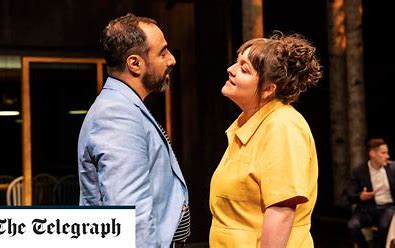

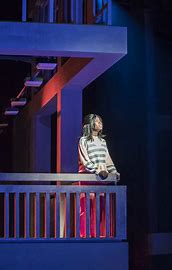

Last New Year’s Day was one of the hardest to wake up to in all of the days since he died. Knowing that I was about to start on a year without him, the first year without him since 1973… It was bleak. Perhaps, whilst this NYE/NYD will acknowledge the sadness, it may be easier. I hope it will be less bleak, less raw.
So, allons-y to 2023. I will formally graduate (for the last time, definitely, categorically) on 11 January, and my next project will be to look for a publisher for a version of the thesis. I’ll have chapters published in two forthcoming books, both on W G Sebald. I’ll travel, to see friends in Scotland, to see family in various parts of the country, maybe a city break in Europe. I’ll go to two family weddings. I’ll finish phase 2 of the decorating, maybe even phase 3. I’ll carry on sharing the cultural riches of Sheffield with friends and family.
Without being Pollyanna-ish, I do know how very lucky I am, to be surrounded by people who want to and do help me, emotionally and practically. I am thankful for them, every day.
For you, I wish for health and strength, for peace and comfort, for love and support.
In 2023 I wish, of course, for a world without war, a world where people are not persecuted for their beliefs, or simply for who they are, a world where women can be safe on the streets and in their homes. I wish for action on climate change, before it’s too late. That’s a lot, I know.
But as we go into another new year I think, as always, of this poem, which gives me hope.
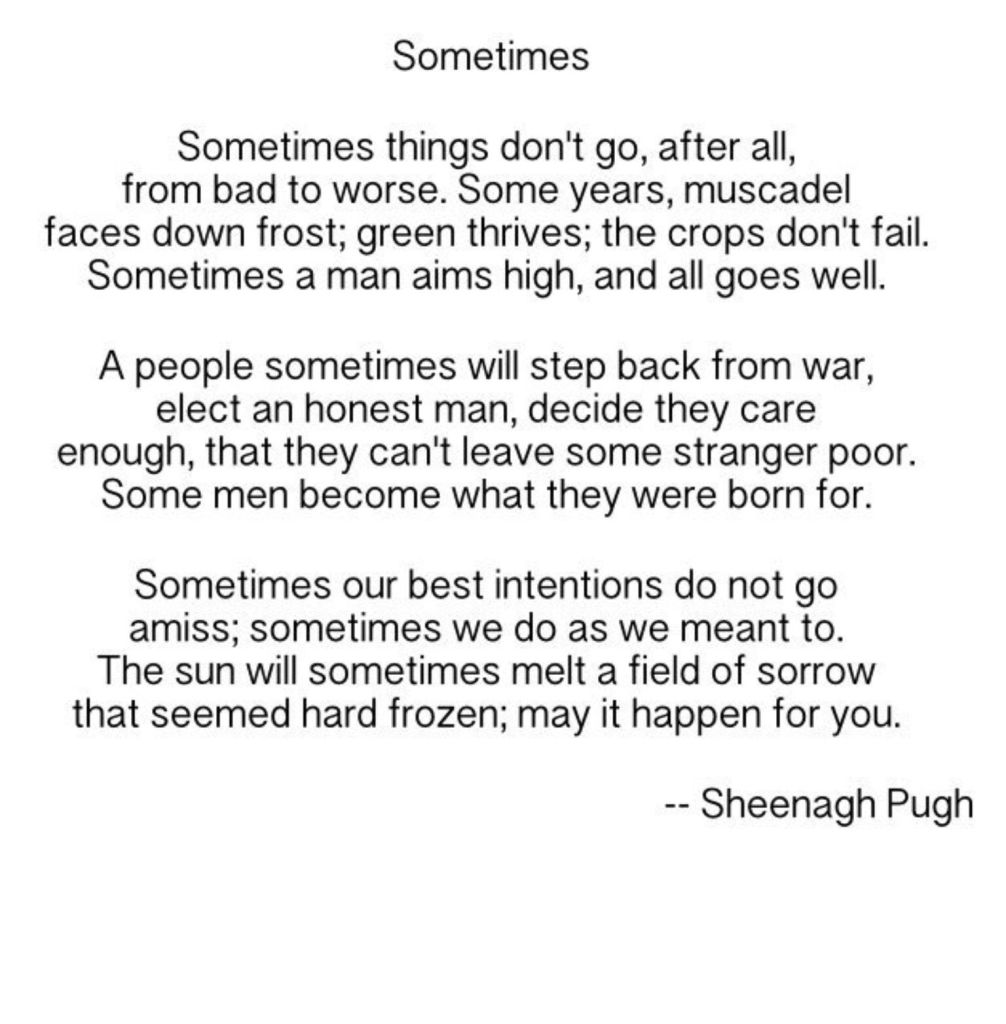
2022 Reading: Full-time Report
Posted by cathannabel in History, Literature, Personal, Second World War on December 16, 2022
I’m still not reading as much as I used to. It’s the silence that’s the problem. Lord knows I used to tut sometimes when I was reading and he broke my train of thought with his own train of thought, but Lord knows I would love to have him do that now. So I turn to the TV sometimes when in the past I would have turned to a book, just to break the silence. Nonetheless, I’ve still normally got two or three books on the go – one on the Kindle and a couple of physical books, usually one fiction and one non, and nonetheless it’s still quite an eclectic list. As always, I haven’t listed absolutely everything – I want to share my enthusiasms rather than my disappointments – and as always I have tried to avoid spoilers but make no guarantees. Top reads this half-year? Jan Carson’s The Raptures, Abdulrazak Gurnah’s Afterlives, David Park’s Travelling in a Strange Land. From the first half of the year, I’d pick out Alan Garner’s Treacle Walker, J L Carr’s A Month in the Country, and Sarah Moss’s The Fell. Since I make the rules for this blog, I shan’t require myself to choose amongst those six titles.
Fiction
Pat Barker – The Silence of the Girls
This, and its sequel The Women of Troy (which I have yet to read) tell the familiar story (familiar not only from Homer but from countless retellings – in my case the first encounter was with Roger Lancelyn Green’s Tales of the Greeks and Trojans and The Luck of Troy) with the focus shifted to the women. In this one, the central role is that of Briseis, handed over to Achilles, appropriated by Agamemnon and retrieved by Achilles, all as part of the spoils of war. It’s a grim tale, beautifully told.
Thomas Bernhard – The Loser
Sebald and Bernhard are often linked, and I figured it was about time I gave the latter a go. The choice of book was a foregone conclusion once I discovered that The Loser was about (in part) Glenn Gould, who fascinates me. There are elements of the style that certainly recall Sebald (any influence was from Bernhard on Sebald) – the novel, like Austerlitz, is one unbroken paragraph, and the narrator’s voice constantly makes it explicit that these are his thoughts, and when he was thinking them (‘I thought, as I entered the inn’, ‘I thought in the inn’ , ‘he said, I thought’, etc) which reminded me again of Austerlitz.
Frances Hodgson Burnett – The Shuttle
I adored The Little Princess and The Secret Garden as a child (never read Fauntleroy, as far as I can recall) and this adult novel was a delight too. It’s quite Gothic in places, but punctured with humour, and with a hero (Bettina) who shines from the pages. The theme is intermarriage between British aristos (broke, with run-down country estates to maintain) and wealthy American heiresses but it’s also a very perceptive (based on first-hand experience) account of coercive control.
Jan Carson – The Raptures
This is stunning. I had no idea for most of it where it was heading, what the answers to the questions were going to be, and indeed ultimately there were no firm answers. But it grips on every page, its characters live and breathe, even when they’re no longer living and breathing. It’s a supernatural mystery, a who (or what) dunit, an allegory about plague and pandemic, a coming of age narrative, a portrait of a small Protestant Northern Irish community. Never mind all that, just read it.
Ann Cleeves – The Rising Tide
A new Vera! I wasn’t sure Cleeves was still writing Veras. Anyway, very pleased to get this and it’s as enjoyable as ever.
Robert Galbraith – Ink Black Heart
Oh dear. I have enjoyed all of the Cormoran Strike books so far, although few of them need to be the length they are. But this one desperately needed an editor to tell her to slash great chunks of the book so that it’s coherent, and particularly to cut back the use of verbatim online conversations (three columns of different conversations, going over several pages) which are incredibly hard to read and to follow. There’s also the issue of the subject matter – online abuse – and its proximity to the author’s life on Twitter and other social media over recent years. I think it’s too close for her to be able to examine that world with any objectivity and the book is a mess.





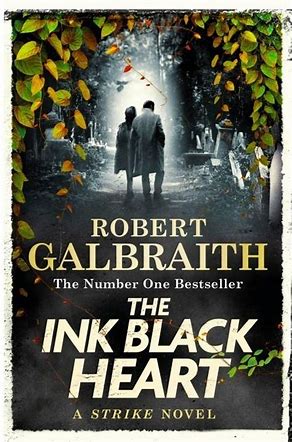
Elizabeth Gilbert – City of Girls
I read The Signature of All Things a few years back and loved it. Still haven’t read Eat Love Pray or whatever it’s called, fairly sure that would not be my cup of tea. But she’s a lovely writer – City of Girls is captivating, and very witty, it sparkles like one of those screwball comedies from the era in which the book is set. And then the tone shifts, and whilst it’s every bit as witty it’s also darker and deeper and very moving.
Graham Greene – The Quiet American
I honestly thought I’d read all of Greene, many years ago (he was a favourite of my mum’s). But this one had eluded me and it’s a fine example of his style and of his preoccupations.
Elly Griffiths – Bleeding Heart Yard
This is Griffiths’ third novel featuring detective Harbinder Kaur, now relocated in that London, and it is hugely enjoyable. As always with Griffiths, the characters are drawn with humour and affection (mostly), and with compassion and insight.
Abdulrazak Gurnah – After Lives
Gurnah was awarded the Nobel Prize for Literature in 2021 but his name had never registered with me. I shall put that right now and read his other books, because this one was excellent. Set in what is now Tanzania, in the early 20th century when the area was a German colony, it sweeps across that century, through the first and second world wars, the shifting boundaries and colonial rulers, but is always centred on the lives of a handful of characters who are battered, in different ways, by these forces. Despite the scale and the horror of what is unfolding, it manages to be, in relation to these people, gentle and subtle and, somehow, hopeful.
Yaa Gyasi – Transcendent Kingdom
I’d read Homegoing a couple of years ago, an epic family history that begins in Kumasi, Ghana, and crosses continents and centuries. The scale in Transcendent Kingdom is much smaller, although it still reaches back to Kumasi, but the central family is contracting rather than expanding (as the narrator says, “There used to be four of us, then three, two. When my mother goes, whether by choice or not, there will be only one”. Its concerns are philosophical, scientific even, as the central character is a neuroscientist, her research intimately connected with her family’s tragedy.
Robert Harris – Act of Oblivion
After Cromwell’s death, those who signed King Charles’ death warrant are on the run, and supporters of the new King are determined to track them down. Harris cleverly builds the tension but also gives us insight into both sides, so we as readers have to keep switching our perspective, as we are with first the regicides and then the manhunter, and we see how both are driven by the absolute certainty that they and their cause are absolutely right.






Mick Herron – Live Tigers/Spook Street
The third and fourth of the Slough House novels and they’re as sharp and funny and dark as ever. I look forward to reading the rest of the series, and to seeing the dramatisation of the second book – Gary Oldman has a marvellous time as Jackson Lamb, really letting rip, in every sense.
Tayari Jones – The Untelling
Secrets and lies and their toxic effects upon relationships are the theme here, and Jones is perceptive and subtle in her portrayal of Aria(dne) and the small circle of people who matter to her.
Stephen King – Fairy Tale
This resembles his 1984 collaboration with the late Peter Straub, The Talisman, more than it does his most recent spate of novels. That’s deliberate, I’m sure – King often makes references to his other books, sometimes in passing, sometimes to create resonant connections (see his various books set in or around Castle Rock, for example), and there are some nice echoes here. He and Straub had talked about another collaboration, although it had never got off the ground, so maybe we can take this as a tribute. It’s King on top form, in any case.
John le Carré – Silverview
Ah, the last le Carré. Edited by his son, from what was a virtually complete manuscript. It’s not the best le Carré but it’s bloody good le Carré and it has the melancholy and the anger that have characterised his work in later years.
Attica Locke – The Cutting Season
A stand-alone from Locke, after her two excellent short series of crime novels. This is crime that drags one back into the past, the slavery past, and it is tense and gripping stuff.
David Park – A Run in the Park/Travelling in a Strange Land
Beautiful writing. A Run in the Park is the gentler read, although there’s plenty of emotional heft in there. Travelling in a Strange Land goes to dark places but in both books there is always darkness and light, loss and love, grief and hope.






Sara Paretsky – Tunnel Vision
The eighth in Paretsky’s excellent detective series, featuring PI V I Warshawsky battling corporate crime and corruption. I’ve read these in random order as I got hold of them, so at some point I will try and fill in the gaps.
Ann Patchett – Bel Canto
My first Patchett – this is compelling and often moving. It’s about a terrorist attack, and the fate of the hostages, but its also about love, beauty and music.
Louise Penny – The Madness of Crowds
Inspector Gamache series, no. 17, the most recent. As with the Paretsky, I’m reading these in a totally random order, so there are references in this one to events which I don’t yet know about, but the main plot stands alone. As always with Penny, there are times when Three Pines seems just too magically cosy but she always undercuts that with the crime and its motivation, which are anything but.
Bapsi Sidwha – The Ice Candy Man
Many years ago I read Sidwha’s debut novel, The Crow Eaters, which I remember loving even if its plot has faded from my memory. The setting is Lahore, once in India, then allocated to Pakistan at the time of Partition. The Ice Candy Man (also published as Cracking India) starts in the period leading up to Partition and confronts the horrors of what happened, through the eyes of a child, who at first has no real notion that the different communities (Sikh, Parsi, Muslim, Hindu, Buddhist, Christian) are potentially a threat to one another. Indeed, her home is a place where people from these communities meet and bicker and insult one another in a largely friendly way, and when violence is predicted insist that they will stand by their friends. We see things through Lenny’s eyes, not all of which she understands, not all of which adults are prepared to explain to her. It’s unflinching, but also often funny and touching.
Zadie Smith – White Teeth
I struggle with Zadie Smith and am still trying to work out why. Her characters never quite seem to live and breathe, as if she’s at too much of a distance from them to really bring them to life. This, her debut, didn’t change my view, unfortunately.
Russ Thomas – Nightwalking/Cold Reckoning
Parts 2 and 3 of Thomas’s Sheffield-based trilogy which began with Firewatching. Excellent plotting and interesting, complicated lead characters.

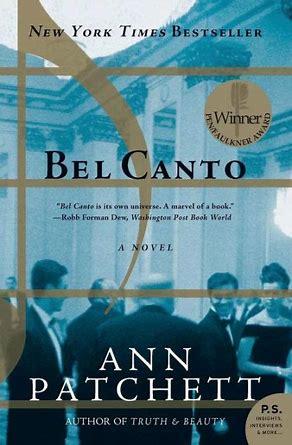
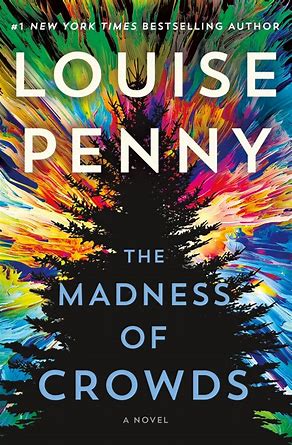

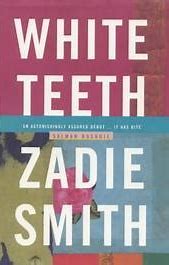

Anne Tyler – Redhead at the Side of the Road
I hadn’t read any Tyler for ages, not since being so disappointed with Vinegar Girl (kind of a take on Taming of the Shrew, but it really didn’t work). But I have read most of her stuff, and I love most of her stuff (top two are Saint Maybe and Breathing Lessons, I think). This one is a lovely variation on ‘a perennial Tyler theme: the decent, mundane, settling-for-less kind of life whose uneasy decorum is suddenly exploded by the random, the uncontrolled, the latent sense of what might have been’, as The Guardian’s reviewer put it.
Non-Fiction
Molly Bell – Just the one Ice Cream?
I read this account of widowhood, by a family friend, a few years back when it was first published. Reading it again now was a remarkable experience – so many of Molly’s observations are ones that I can relate to – I kept thinking ‘Yes! Yes, that’s it!’. It’s insightful, honest and warm.
Sarah Churchwell – The Many Lives of Marilyn Monroe
Having felt rather grubby after watching Blonde I thought this would be a good antidote. It’s the story of the stories of Monroe’s life, of the clichés and stereotypes, the biographies and memoirs and attempts to uncover the ‘real’ Monroe. It’s incisive and rigorous and fascinating. It was published before the film of Blonde came out, but includes Joyce Carol Oates’ novel in her analysis, along with Norman Mailer, Arthur Miller and a host of lesser lights whose accounts have been published over the years.
Laura Cumming – On Chapel Sands: My Mother and other Missing Persons
A very intriguing memoir/detective story. Cummings gradually reveals the secrets of her mother’s early life, and at each step shows how she had to reevaluate everything she thought she knew, and her understanding of the people involved. If it were fiction it would be a great read but it gains depth through the knowledge that it is a true story – it’s deeply personal, and terribly sad.
Mike Duncan – The Storm before the Storm
The rise of the Roman Republic, as Duncan tells it, was the beginning of its fall. Fascinating, accessibly written account.
Sebastian Haffner – Defying Hitler: A Memoir
Haffner (real name Raimund Pretzel) wrote this account of Germany in the First World War, the Weimar Republic and during the rise of Nazism, in 1939, after he had emigrated to England. It was only published in 2003, having been left unfinished, as Haffner worked on his less personal account, Germany: Jekyll and Hyde, and was collated for publication by his son. It is therefore written without hindsight, at least without the knowledge of what lay inexorably at the end of the Nazi road, and thus its insights are fresh and passionate, exploring how Germans came to choose Hitler.


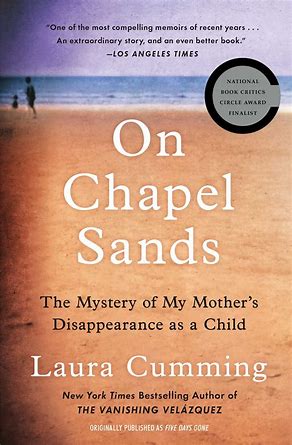
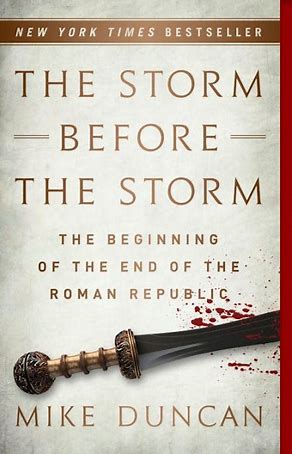


Sudhir Hazareesingh – Black Spartacus: The Epic Life of Toussaint Louverture
Epic is right. An extraordinary man, with an extraordinary life and achievements, which resonate to this day (as I was reminded in the cinema the other day, watching Wakanda Forever…)
Hans Jahner – Aftermath: Life in the Fallout of the Third Reich, 1945-1955
An excellent study, exploring many aspects of the post-war period, and taking the story further, beyond the bomb sites and the hunger, to recovery, and division. He draws on a number of memoirs, often from women, which shed light on daily life, on culture and politics, on work and money. It’s rigorous but entertainingly written, often with a wry humour.
Michelle Obama – Becoming
Great stuff – she writes interestingly and engagingly, about her life before she hooked up with Barack as well as showing us his presidency from her perspective and that of the family. I would have liked to hear her account of the years after his presidency ended – maybe another volume will be forthcoming…



My reading this year has taken me out of my own time and place and as always I feel enriched by it, I feel my sympathies have been extended, as George Eliot puts it. I’ve been entertained as well as educated, often at the same time, and I’ve been moved to both laughter (laughing out loud is something I do too little of these days, living alone) and tears (well, no shortage of those, nor any surprise to those who know me, even before recent losses). I am deeply grateful to all of the writers with whom I’ve shared 2022 and who, in their various ways, have helped me through it.
2022 On Screen: Full-time Report
Posted by cathannabel in Film, Television on December 16, 2022
The usual caveats and footnotes. I try to avoid spoilers but you take your chances if you read on. I haven’t listed things I watched that were just a bit rubbish in an uninteresting way. I’m still watching more than I ever used to before he died – the TV brings human voices into my home, which would otherwise be far too quiet much of the time. I do still read a lot too, but the balance between the two has certainly shifted, whether permanently or not it is too early to say. I haven’t included ongoing series which featured in the half-time report, unless there was something significant to add. I’ve noted which of the films I saw at the cinema rather than in my living-room via streaming services, only to mark the gradual return to the cinema over the last year or so, and in recognition of the very different experience that this represents. And I’ve asterisked the best stuff, though to pick a film or TV series of the year would be too difficult, given the range of genres and styles and brows.
Film
All Quiet on the Western Front (cinema)*
Superb remake of the Milestone milestone (and the ‘70s adaptation which seems to be largely forgotten – I haven’t seen it so can’t say whether or not that’s deserved). It is faithful to the book apart from introducing a narrative strand showing the negotiations leading up to the Armistice, which is very powerful, and there is a stunning opening sequence that is both shocking and moving.
Benediction*
This is a fine, beautiful film. I read the WWI poets at school and independently, and I also read Pat Barker’s Regeneration trilogy, which intersects with the narrative of this film about Siegfried Sassoon. Superb performances, beautiful soundtrack which intersperses the popular songs of Ivor Novello, amongst others, with the music of Butterworth, Britten and Vaughan Williams, very powerful and moving.
Black Panther: Wakanda Forever (cinema)*
How can they follow up Black Panther, without Chadwick Boseman? By acknowledging his loss in a very powerful way, letting it suffuse the film, not pulling any punches about what grief and loss can do to us. Of course those themes were going to resonate with me even more intensely this year, as the anniversary of my husband’s funeral loomed – but I was so glad that they didn’t do the fantasy/scifi/superhero thing of in some way undoing death, or de-stinging it. Tchalla died as Boseman did, of a regular common or garden mortal ailment which all of the medical brilliance in the world couldn’t fix. And that was right. The rest of the movie – well, it was grand, it packed probably too many ideas in (a common flaw) and not all of them quite worked, but it was visually lovely, and even without Boseman (except for glimpses in flashback) the cast is superb (inc. Nyongo, Bassett, Wright, Gurira).
Blonde
Don’t. Just don’t. This was a gratuitous and exploitative take on the life of Norma Jean Baker/Marilyn Monroe, which gave her no growth and no agency, and the viewer no insight into her intelligence, her wit and her convictions. I read Joyce Carol Oates’ book quite a few years ago and don’t remember feeling like this about it, so perhaps some of the problem is the difference between reading, where I can identify with Norma Jean/Marilyn, and watching, where I am forced into a voyeur’s role. But in any case, just don’t.
Bridge of Spies
Essentially, a Tom Hanks movie about an ordinaryish sort of a bloke who sticks to his guns and does what’s right even when everyone is telling him not to. Excellent, if not groundbreaking. I liked Rylance’s repeated refrain of ‘Would it help?’ when asked whether he is worried or afraid. And his characterisation of Hanks’ character (in this film and so many others) as The Standing Man, a man who gets up again every time he is knocked down.
Dreamgirls
Highly enjoyable fictionalised account of the Supremes’ rise to fame and Diana Ross’s rise to the lead role, displacing Jennifer Hudson’s Florence Ballard equivalent. The music, inevitably, is pastiche Motown, but very good pastiche Motown, and then there’s Hudson’s blockbuster number, ‘And I’m Telling You I’m Not Going’) which blows your socks off.


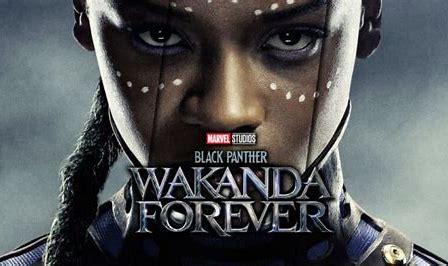

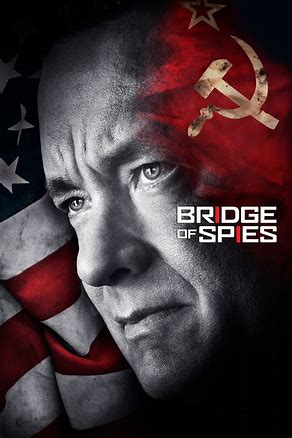

Everything Everywhere All at Once
Dr Strange’s Multiverse of Madness looks relatively sane compared to this. Michelle Yeoh is brilliant (when isn’t she?), as is Jamie Lee Curtis. I had no idea what was going on half the time, some of it was quite gross, a lot of it was very funny and ultimately it was rather poignant. Thoroughly enjoyable.
Eye in the Sky
Very, very tense. And doesn’t shirk the moral murkiness of warfare. Helen Mirren is excellently steely in the lead.
The Father
What possessed me to watch this, after spending a weekend with my father, who has dementia? I don’t know. It’s exceptionally good, of course, and the fact that it was, as one gradually realises, from his perspective, not from that of those caring for him, was fascinating and very moving.
Frances
An old-fashioned star biopic with added sleaze. Its relationship with the facts of Frances Farmer’s life seems to be tenuous at times, but Jessica Lange is brilliant. Interesting to compare it with Blonde – obviously the life stories of Farmer and Monroe have both similarities and profound differences – but despite the inevitable sense of voyeurism as we see Farmer suffer, she is shown, right until the final act, to have agency, to have some fight in her.
Harriet
Cynthia Erivo is superb as Harriet Tubman, hero of the Underground Railway. It’s an incredible story, but whilst the film obviously simplifies some things a little, it is faithful to the history, whilst leaving us to decide whether Tubman’s own belief that she is guided and strengthened by God in her work to escort slaves to freedom is right, or whether her ‘visions’ are the result of a head injury in childhood. The soundtrack, by Terence Blanchard who also did the soundtrack to The Woman King, is excellent too, and the film makes use of Erivo’s stunning voice as she uses gospel songs to communicate with the slaves on the plantation.
A Hidden Life*
Franz Katzenkammer’s life may have been hidden but posthumously he was beatified by his Church as a martyr, having been executed by the Nazis for refusing to swear the oath of loyalty to Hitler, so he has not been forgotten. And this film is a beautiful and subtle portrait of a man who, as heroes have done in every unjust and brutal regime, simply said no, this isn’t right, I can’t do it. It wasn’t just the refusal to fight for the Nazi regime, because even if he’d been given a medical corps option, that oath of loyalty would still have been required, and he couldn’t do it. It’s a long film and I started off wondering how on earth this fairly simple story could be spun out to three hours plus. But the pacing of the film was just right, and it was essential that we felt the pattern of his life on the farm, the seasons and the harvests, to know what he was risking and why.



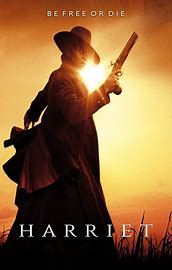


I Came By
Well, Hugh Bonneville may not have convinced me as Mountbatten (see below) but he actually was quite convincingly sinister in this thriller, even if the plot was a bit creaky.
The Iron Lady
And another film about dementia. Why do I do this? I watched it not because of that, but out of curiosity to see how Streep played Thatcher, particularly having seen Gillian Anderson (The Crown) and Patricia Hodge (The Falklands Play) in the role recently. Streep is somewhere between the two – her Thatcher is not as odd as Anderson’s, nor as sympathetic as Hodge’s, though the scenes of her confusion are inevitably touching.
JFK
Lord, this was long. And turgid. And talky. I may have learned my lesson about Stone – he managed to make 9/11 tedious in World Trade Center and this is only marginally better. I don’t know the conspiracy theories all that well, but it seems from my minimal research that much of what he’s presenting here (via Jim Garrison) is dodgy and effectively discredited. And I can’t see why a judge would allow Garrison to expound on his theories at enormous length without tying it in clearly to the person who was actually on trial. No wonder the jury let him off. Enough already.
A Jazzman’s Blues
A labour of love from director Tyler Perry, this is a classic narrative of racism, escape through music, ‘passing’, so all of the elements are familiar, but it’s well done.
Lady Chatterley’s Lover
2022 adaptation, from Laure de Clermont-Tonnerre. I haven’t read the book since I was an undergrad (first time around) so I’m not sure how faithfully it follows Lawrence’s plot, but it has the feel of Lawrence, in its combination of earthiness, sensuality and reverence. Emma Corrin and Jack O’Connell are well cast and play it with conviction.
The Lives of Others*
Brilliant. Subtle and low-key, the oppressive atmosphere of Stasi surveillance and control is unnerving, and the character of Stasi Captain Gert Wiesler, beautifully portrayed by Ulrich Muhe, is ultimately very moving.

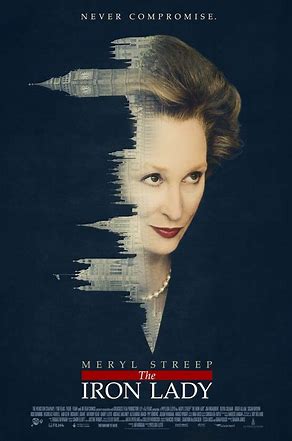




Loving
Ruth Negga and Joel Egerton are wonderful as the Loving couple whose marriage broke state laws in Virginia about interracial mixing and who fought this right up to Supreme Court level, and won.
The Man with the Iron Heart
Based on Laurent Binet’s novel HHhH, which I read last year, this account of the assassination of Heydrich in Prague in 1942 starts with the attack, then freeze frames and we return to the young Heydrich himself and follow him through his career before going back to the parachutists and the resistance in Prague. Because it takes this approach, there’s less time to develop the characters of the resistance members but it’s well done, nonetheless. Impossible not to compare with Anthropoid, which came out a year or so after this, and whose focus is on the resistance throughout. My one quibble with this version of events is that, for reasons I do not comprehend, it makes the son of the family who sheltered the parachutists a boy of, at most, 10/11, whereas in reality he was 17. This makes the scenes of his capture and interrogation even worse, of course, but we hardly need to make the Nazis’ crimes more hideous, given that we are about to see the wiping out of the population of Lidice.
Martha Marcy May Marlene
Proper unsettling. We have a potentially unreliable narrator in Elisabeth Olsen’s Martha – it’s a while before we get a glimpse of what her life had been before escaping to her sister, and we can’t be sure of everything we see. There’s a sense of threat remaining with her, which could just be the effects of trauma, but we can’t be sure of that either. Olsen is wonderful, and Sarah Paulson manages to get the balance between exasperation and incomprehension, and sympathy. John Hawkes is compelling in an awful way as the cult leader.
Moonage Daydream (cinema)*
This one got a lot of love from those who love Bowie, but also a lot of criticism from people who wanted Brett Morgen to make a different kind of film about Bowie. It was a visual and aural onslaught, sound and vision bombarding us with the music and the changing images of Bowie, interwoven with interview material. The latter is chronological, unlike the music and visuals, so that we get a sense of a man learning about himself, growing up in public, gradually finding a way to be at ease with himself, which was very moving.
Nope (cinema)
I loved Get Out and Us, and I am more ambivalent about Nope. It is more sci fi than horror, so I had to recalibrate a bit, as I was expecting something more like Peele’s first two movies. But I think possibly there are just too many ideas jostling for the audience’s attention here – I want to rewatch it to see if some of that comes more into focus. Performances are excellent, and there are many moments that have stayed with me, but I can’t quite grasp it as a whole.
October 1
Fascinating Nigerian crime thriller set in the weeks leading up to independence. It’s not a whodunnit, strictly speaking, since the perp is pretty easily identifiable early on. What we don’t know is why. But even that isn’t where all of the interest lies – that’s in the tensions that exist between the Hausa detective who’s leading the investigation, and the Igbo and Yoruba people who live in the area, along with a handful of supercilious Brits. The bit where one character ‘foresees’ that in seven years there would be civil war is a bit on the nose – by 1966 civil war was gearing up with coups, counter-coups and pogroms, and in ‘67 it was raging – but of course it was all too foreseeable, even if not with that level of precision.
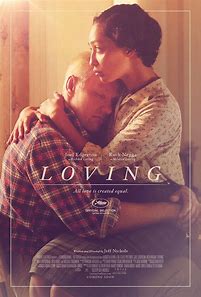

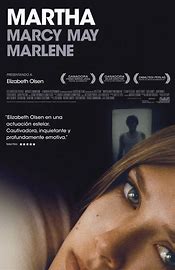



See How they Run
Highly enjoyable, very meta, Christie spoof/hommage, with an excellent odd couple pairing of cops in Sam Rockwell’s weary, boozed up Inspector, and Saoirse Ronan’s bright eyed and idealistic Constable.
Soul
Another Pixar gem. Obviously I was going to love the jazz theme, and the score, and I loved the central character (voiced by Jamie Foxx). It’s about what makes us who we are, what is the spark that animates our lives, and it’s very touching.
Spencer
The anniversary of her death meant lots of Diana-centred TV. This was very good, not a conventional or realistic biopic but a glimpse into the world of someone on the edge, who’s given up on being what her circumstances require her to be. The scenes with her and her children are very touching, and ring true. The Family are kept largely in the background (apart from a couple of scenes with the (then) PoW, played by Poldark’s Evil George, Jack Farthing). It’s interesting to compare with Elizabeth Debicki’s take in The Crown Season 5 – I think Stewart is somewhere between Debicki and Emma Corrin’s earlier version of Diana).
Thor: Love & Thunder (cinema)
Tonally all over the place – the humour is pretty broad (the goats), but the scenes with the captured children are genuinely tense and scary, and the ending packs some emotional power. Thoroughly enjoyable.
The Train
This would have passed me by entirely as I’m neither a Burt Lancaster fan, particularly, nor interested in trains, at all. However, someone on Twitter mentioned it and I am glad they did, as it confounded all of my expectations. I envisaged a straightforward early 60s action movie (Alistair MacLean, that sort of thing), but whilst there is plenty of action, there are also moral dilemmas – do we risk lives to save artworks from being removed to Germany before the Allies reach Paris? – and the tension of waiting for the Allies to arrive and how that affects the actions of the Resistance, is powerfully present (reminded me of Is Paris Burning?). Lancaster apparently learned some of the skills of a railway engineer and you can almost smell the sweat and the engine oil. Absolutely gripping, and avoids the typical war movie clichés.
Trees of Peace
A very different treatment of the Rwandan genocide. We see only what can be seen from the hiding place under the kitchen of a Hutu home, by the four women sheltered there – through a small window, which they dare not look out of for long, and through the trap door when the husband periodically brings them food supplies. It’s extremely claustrophobic, and the horror outside is powerfully conveyed through sound – gunfire, shouting, weeping, screaming. It’s a tribute to the Rwandan women who led much of the reconciliation and justice initiatives after the genocide was over.






A United Kingdom
Excellent portrayal of the marriage between the heir to the throne of Bechuanaland and an English girl, which had huge political ramifications. Oyelowo and Pike are very convincing, and Pike does a lovely job of showing her uncertainty as to how to behave when she first arrives in her new ‘kingdom’.
Viceroy’s House
Partition, a theme in this year’s watching and reading, due to the anniversary, here from the perspective of Mountbatten and his wife, arriving as the last Viceroy, and overseeing the process that carved up India and left whole populations on the wrong side of new borders, with horrific consequences. We see the violence, the queues of refugees, but also the ludicrous carving up of the Viceroy’s library (does Pakistan get Jane Austen, or the Brontes?) and the silverware (divvied up proportionally according to population size). I wasn’t entirely convinced by Hugh Bonneville as Mountbatten. But the biggest problem with the film is the Romeo & Juliet romance across the divide, which seemed manufactured, and the happy ending was both predictable and entirely improbable. It was, perhaps, a missed opportunity given that the director’s grandmother survived (barely) the events of Partition, and her real story might have been more compelling for being less romantic.
Who You Think I Am
Juliette Binoche (excellent) in a very twisty tale of false identity and internet romance. It took me a while to put the pieces together, and I’m still not sure they all fitted, but it was compelling and entertaining.
The Woman King (cinema)*
Women warriors in 18th century Dahomey (now Benin)? Sounds like my kind of movie, and indeed it was. Viola Davis was brilliant, as was Thuso Mbedu as the young recruit to her army. The film doesn’t dodge the tricky questions about slavery and about the treatment of women (even in a society which has an army of powerful women). It was filmed in South Africa but the scenes along the coast reminded me powerfully of my childhood visits to Cape Coast, where we visited the castle and its Door of No Return, from which the captured slaves were loaded onto the ships.
The Young Victoria
Enjoyable, but not massively enlightening. Emily Blunt is excellent, of course, and her Vic is pretty feisty, and the relationship with Albert is charming. It resonated often with the early series of The Crown, where Claire Foy’s Elizabeth is discovering that whilst she may be a monarch she can’t actually change anything.
TV
AIDS: The Unheard Tapes
Recorded interviews with people with AIDS, some who made it, some who didn’t. Honest and direct, these interviews take us through from the first early warnings of an epidemic to the miracle of a treatment that actually worked. All of the interviews are voiced by actors so the viewer does not know, until the final episode, who died and who survived, and that realisation – in both cases – is incredibly moving.






Andor
Prequel to Rogue One, one of my favourite latter-day Star Wars films. It takes a while to get going but once it does, it’s phenomenal. I enjoyed Mando, but this is stronger and darker, and – once it builds up the momentum – totally compelling.
Borgen
Fascinating series – here the personal is political and vice versa, as we accompany Birgitte Nyborg Christensen on her rise to power. She’s a sympathetic character, but we see her flaws, we see how she’s prepared to manipulate people (even her own family), and how ruthless she can be, whilst being fundamentally a good person. It’s intelligently done and I now understand an awful lot more about Danish politics than I ever expected to.
Call my Agent
The French original, not the remake. Very funny, often wildly OTT, with highly enjoyable turns from some of the top stars of French cinema (Binoche, Huppert, Reno and many more), sending themselves up something rotten.
The Capture
Even more than Series 1, this second series is likely to induce a degree of paranoia in any of us. Can we trust anything we see or hear? Apparently not. I have no idea how plausible it all is, but no matter, it was gripping and kept on wrongfooting me.
Crossfire
This got a critical hammering from some reviewers, but I enjoyed it – it was very tense, the lead character (Keeley Hawes, brilliant as always) was not entirely likeable (she does that very well too – see Line of Duty and It’s a Sin), but we end up rooting for her anyway, as the hotel she and her family and friends are staying in is attacked by armed men (terrorists? We don’t know who or why at first). Written by Louise Doughty, one of my favourite contemporary writers (and very versatile – best known for Apple Tree Yard, but her finest book (IMHO) is Fires in the Dark about the Roma Holocaust), which is why I decided to watch even after some rather snarky reviews, and I’m glad I did.
Daredevil
Marvel noir. We’d watched Series 1 a couple of years back but for some reason hadn’t continued with it. Series 2 was strongest when focusing on the Punisher rather than on Electra, I think, but Series 3 was the strongest, with the return of Kingpin. Daredevil himself is a bit broody (OK, he’s given plenty of reasons to brood, but it can be wearing – which is why his appearance in She Hulk was such a delight). Very enjoyable.




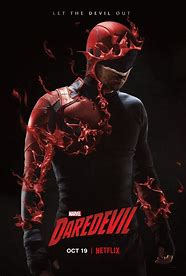
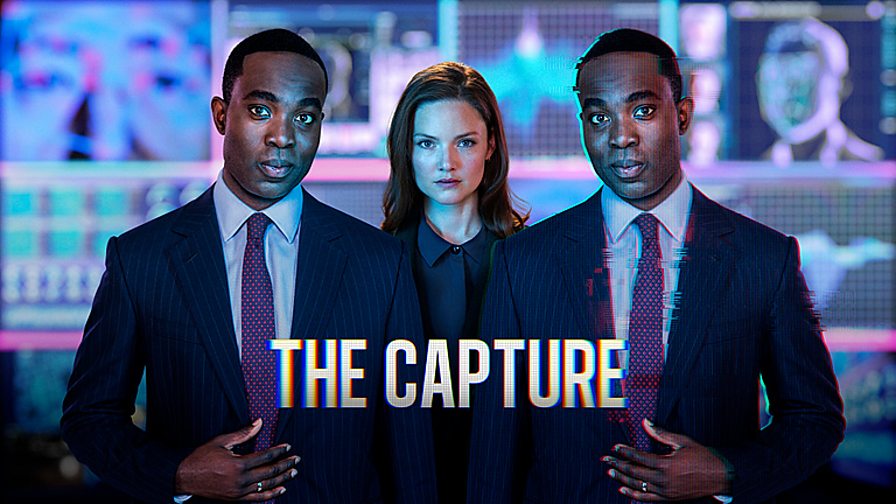
Descendant*
This is a remarkable documentary, about the recovery of the slave ship Clotilda, which brought slaves to Alabama after the abolition of the trade, and which was then sunk to avoid prosecution. There’s a community there who are directly descended from the Africans who were on that ship. Not only that, but Zora Neale Hurston made a film about that community, featuring the last of those Africans, Cudjo Lewis. Seeing him on screen gave me goosebumps. The descendants have had conflicted emotions about the raising of the ship, fearing that their history would be appropriated for tourism and profit by, in some cases, the descendants of the very people who had kidnapped and enslaved their own ancestors, and those who had encouraged the liberalisation of rules about heavy industry in the area, resulting in cancer clusters amongst the Africatown people. But they have allies who are determined to ensure that their history remains their history.
Doctor Who
The last time the Doctor is Jodie Whitaker. The season finale was typical of the Chibnall era, loads of stuff happening, impossible (at least on a single watching) to keep track of all the threads, but things come together very nicely at the end. Her final words included a nod to Dennis Potter’s extraordinary interview with Melvyn Bragg after he knew he was terminally ill – ‘the blossomest blossom’ – which was very moving (that interview has stayed with me ever since we watched when it was first broadcast, as a beautiful musing on mortality). There’s a lot in this finale for the Whovians, which is fine by me, especially as we’re coming up to the show’s 60th anniversary – it was rather lovely to see Docs 5, 6, 7 and 8, and 1 as portrayed by David Bradley, and to see Ace and Tegan back in the fray. And the Doctor’s companions’ support group was a delightful idea – I would have liked to listen in on a lot more of that. I’ve loved Whitaker’s Doctor, even if not all of the stories have been quite as strong as the best of RTD and Moffat, and she’s opened the door for future Doctors to be anything they damn well please. Lots to look forward to in 2023.
The English
The landscapes are stunning, the pace is varied, sometimes dreamily slow, sometimes all crackle and fire and violence. Emily Blunt and Chaske Spencer are both excellent and make a compelling duo. It’s hard to write about, but it’s exceptional TV and I will rewatch it soon, to appreciate its subtleties and its beauty.
Good Grief
Rev. Richard Coles exploring ways of working through bereavement (laughter yoga, skydiving, animal therapy, widows’ retreat). As always, his engaging, reflective, self-deprecating style was just right for the topic, and whilst it did, inevitably, make me cry a fair bit, it also made me think a lot about the process I’m going through, and how I can understand it better. Thanks, Rev.
The Good Nazi
A Nazi who saved Jews in Vilnius by employing and housing them, and who enabled at least some of them to find hiding places when the SS decided to eradicate them. I would have been interested to know a lot more about Plagge – why did someone who was a very early member of the Nazi party and rose through the ranks, suddenly become so appalled by what they were doing that he decided to risk his life to undermine it? But a lot of the programme was about the archaeological investigation in the housing blocks where the Jewish workers were living, and the search for evidence of the spaces where they hid during the last days before the Red Army arrived, and this was fascinating in itself.
Help
I couldn’t bring myself to watch this when it was first broadcast, too close to the events. I’d found the news footage from care homes particularly heartbreaking, with elderly residents unable to understand why their family members couldn’t come in to see them. The drama focuses right down on one care home, and within that one care worker (Jodie Comer) and one resident (Stephen Graham, playing a 47 year old with early onset Alzheimers). Given those two in the cast, it was always going to be powerful (and the other actors included Ian Hart, Sheila Johnston and Cathy Tyson, so the quality throughout was high). The central part, where Comer’s Sarah finds herself managing alone through a night shift with a resident dying of Covid is shot in a long take so we see her rushing from one place to another, from the phone to the critically ill resident and back again, trying to manage, trying to get help, and weeping as she does so, and it’s a stunning piece of film making. The third act didn’t convince me (or the Guardian reviewer) but up to that point it was a triumph and if you didn’t feel angry as well as heartbroken by the end you probably don’t have a soul.



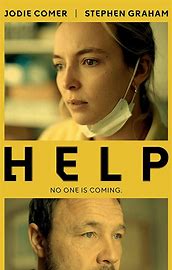


High Fidelity
A gender switched version of Nick Hornby’s book, which was filmed with John Cusack in the lead role, here taken by Zoe Kravitz. I’m so up for that – when I read the book, I felt some affinity with the lead character despite him being a bit of a dick, mainly because of his obsessiveness about music, and making lists of songs, all of which I could identify with. I gather there will only be this one series which is a shame, but it was very enjoyable, and Kravitz is very engaging.
India 1947: Partition in Colour
Partition again – a documentary series using contemporary footage as well as talking heads. Very well constructed, lucid explanations, passionately expressed, of what happened and why.
Inside Man
David Tennant, Stanley Tucci, Stephen Moffat – what more could one wish for? If one wished for an entirely plausible plot one would be disappointed. However, the way it works is to create a sequence of chance events that set in motion an inexorable series of desperate and disastrous decisions that build and twist towards a desperate and disastrous outcome, all overseen, bizarrely, by Tucci’s criminologist/death row prisoner. To say more than that would risk spoilers – if you’re prepared to suspend your credulity and just enjoy the ride, as I did, go for it.
Is That Black Enough for You?
In-depth account of black Hollywood – actors, directors, producers – from the 30s to the late 70s. Fascinating stuff, though the narration is sometimes a little dry, and I would have liked it to take the story a few decades further – maybe a Part 2? The big names are here (interviewees include Belafonte, Fishburne and Samuel L Jackson) but so are many, both behind and in front of the camera, of whom I had never, or barely, heard.
Jessica Jones
This, like Daredevil, is noir, very noir. And it twists the beguiling charm of David Tennant into something terrifying and horrific, for which I may never forgive them…
Jewel in the Crown
I wondered how this series, which had a huge impact on me when first broadcast (1984) would stand up. I need not have worried – it is superb throughout. The cast is outstanding and the narrative tension is so intense – I re-watched it around the time of the anniversary of Partition so it had an added, very powerful resonance (Paul Scott’s novels were where I first learned about Partition). The final episode, the scene with the train, is imprinted so firmly in my memory after all these years that I could have said, with Ahmed, ‘It seems to be me they want’, as he stepped out of the carriage. And other moments too: Daphne Manners, saying ‘Steady the buffs’ as she walks into the darkness of the Bibaghar Gardens, or the way she lifts her chin defiantly and resolutely when she says of Hari Kumar, ‘Oh, he’s just a boy who went to Chillingborough’.
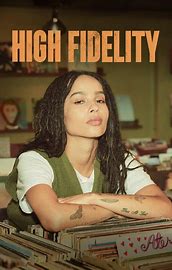





Karen Pirie
Superlative detective drama from Val McDermid. Pirie is a fine creation, entirely believable and likeable, and the writing and plotting were of a very high standard.
The Lazarus Project*
This is a cracker of a thriller, by the writer of Giri Haji, the best thriller series of 2021. That didn’t get a second series, but I am very much hoping this one will. Great cast, fascinating premiss, and the idea of a timeloop (I do love a timeloop) is explored rigorously and pitilessly.
The Long Call
An Ann Cleeves adaptation that is neither Vera nor Shetland – as always, well plotted and an interesting setting (in an extreme fundamentalist community). The lead detective could have been given a bit more character but if there are future series he might well grow on me.
Maxine
This probably shouldn’t have been done, but as it was, and as I watched it, I have to say it was done well. There was nothing voyeuristic here as far as the murders were concerned, and the portrayal of Maxine Carr was ambiguous – she is shown as clearly being in a coercive relationship but she’s far from being a mere victim, much more complicated than that.
Our Friends in the North
Another trip to the archives for this series, notable for the stellar careers it launched (Eccleston, Craig, McKee and Strong). It’s a gritty take on politics and social change from the ’60s to just before the Tories lost power in 1997. Some things don’t wear too well – the sex scenes were excruciating, and the amount of nudity required of the female characters was annoying. But it had a lot of heart, and a lot of anger, and great performances (aside from the four already mentioned, Peter Vaughan was particularly brilliant).
Passport to Freedom
Gripping Brazilian series about the staff at the consulate in Hamburg who managed to get visas for hundreds of Jews, until the point when Brazil entered the War on the Allies’ side. I had never heard of Aracy de Carvalho but she has been recognised as one of the Righteous among the Nations. I assume some of the peripheral characters and events may have been invented or enhanced for dramatic purposes, but it the core of the narrative was soundly researched, and it was all very well done.
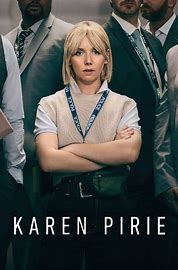
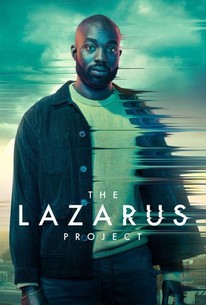




Queer Eye
We were late coming to this delightful party, but fell hopelessly in love with all five of the Queer Eye guys. They’re funny, warm and utterly charming, and spending time in their company is most therapeutic.
Rings of Power
This looks absolutely stunning – it takes a while to build and seems quite slow at first, but it’s setting up a world, and this pays off as the series progresses. Morfydd Clark is excellent as Galadriel.
The Roads to Freedom
Another archive treasure, this is an adaptation from 1971 of Sartre’s trilogy, set in the period just before the Nazi invasion and the fall of the French army. Would anyone make something like this now? Not a lot happens, at least until the final episode, the ‘action’ is all in Matthieu’s head (Michael Bryant, superb, playing Sartre’s representative in the novels) as he constantly questions his own motivations and desires, the nature of freedom, and so on. I loved it.
Sex Education
The frankness is slightly startling at first, but one quickly gets used to it, because the tone overall is really very sweet and funny. The setting is odd – the school is straight out of Sunnydale, and it appears to be set in open countryside, which makes one wonder about its catchment area – but that gives it perhaps more universality than if we’d been able to locate it somewhere recognisable. The performances are delightful.
She-Hulk: Attorney at Law
Firstly, it’s always brilliant to see Tatiana Maslany, who pulled off a real acting coup in Orphan Black by playing multiple clones so cleverly that I more than once had to stop myself looking them up on IMdB. Secondly, it’s funny, and feminist. Thirdly, Daredevil shows up, and Tim Roth having enormous fun as Emil Blonsky.
Sidney
This documentary on Sidney Poitier is fascinating and moving. I had no idea about his early life, about how he got into acting, and it made me admire and respect him even more than I did already. For anyone interested in the civil rights movement, and in Hollywood in the 50s and 60s, this is a must-watch.



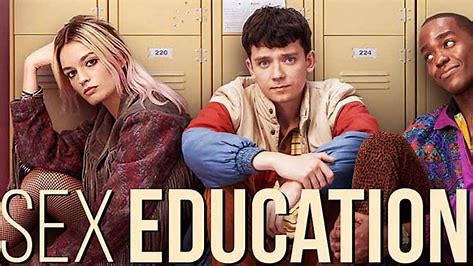


Strange New Worlds*
I enjoyed this unequivocally (in comparison to Star Trek Discovery, about which I have longstanding reservations). Anson Mount as Captain Pike is great, and I love Spock and Uhura, but all of the lead characters have a bit more spikiness to them than their Discovery opposite numbers. Some great storylines here, a nice balance of peril and humour.
The Suspect
Aidan Turner in a rather impressive beard portrays a very clever man who behaves like an idiot when he realises he’s potentially compromised in a murder investigation. It’s all very gripping and enjoyable but I didn’t really believe a word of it.
This England
This series really couldn’t decide what it was trying to do and the various elements clash horribly. There’s no need for reconstructions of the events that we all saw on the screen only a couple of years ago – it’s much more interesting, even if highly speculative, to go behind the scenes and see the private interplay between Johnson and Cummings and so forth. And these scenes are intercut with sequences in care homes and IC wards, which are relentless and powerful, genuinely hard to watch (much as the daily updates from London hospitals were at the time), which makes the indulgence of watching Boris and Carrie, or the daft dream sequences as Boris succumbs to fever, seem really quite crass. There could be several films to be made here, perhaps when a bit more time has elapsed.
Trom
Solid Nordic noir, based in the Faro Islands, and taking in police corruption, anti-whaling activism and murder.
The Undeclared War
This is in similar territory to The Capture but works rather less well, due to some dodgy plotting. What was great was the imaginative way of showing the process of cyber detective work in literal terms, rather than just endless sequences of people sitting in front of computers and pressing keys.
Vatican Girl
Documentary series about the still unsolved disappearance in 1983 of Emanuela Orlandi, who lived within the Vatican itself. The investigation takes in the attempted murder of the Pope, the rise of Solidarity in Poland, the Mafia and corruption within the Vatican. It’s compelling material, even if the programme suffers from documentary disease – repetition, gimmicky camera work and an ever-present soundtrack – as if the makers lack confidence in the story they’re telling (or have rashly committed to more episodes than the material can really sustain).
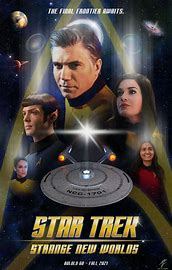

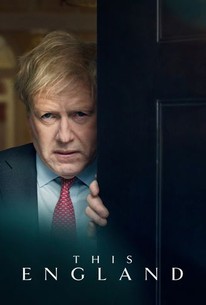


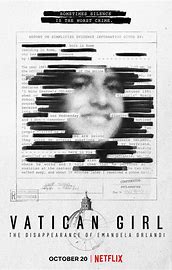
The Walk-in
Stephen Graham again, this time in the true story of Matthew Collins, the former far-right activist who now works for Hope Not Hate, and who linked up with a member of National Action who was scared and alienated by their murderous plans. What it does terrifically well is to refuse to show Robbie, the ‘walk-in’, as a reformed character, as having had the kind of Damascene conversion that Collins had. He’s still a racist, just maybe not as much of one, and not one who can contemplate the murder of an MP.
The Walking Dead
The final season. Although the many loose ends will, we assume, be picked up in one or more spin-off series – I’ll wait and see whether those look tantalising enough to watch. The final episode itself would have been better split into two, one feature length, and then a shorter coda. As it was, some of the – very gripping – action seemed compressed, with unexplained jumps in time which made some of the escapes from apparently certain death seem ridiculously easy, and one therefore resented the drawn-out reunions and farewells which had strong Return of the King vibes. But there were some brilliant sequences and not all of our guys made it (though rather more of them than we might have expected at the start, at least if we hadn’t been watching this series for as many years as we have). Overall, I’ve loved TWD, even with the Saviour-shaped slump in the middle. Along the way there have been many episodes watched from the very edge of the sofa, many great characters, many stunning set pieces, and some really inventive direction. And a lot of gore.
Wisting
Norwegian noir, Seasons 2 and 3. Good, solid crime drama that brings together the worlds of policing and investigative journalism through the lead cop, Wisting, and his daughter Line.



